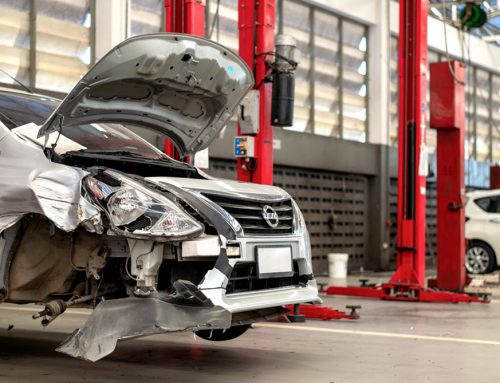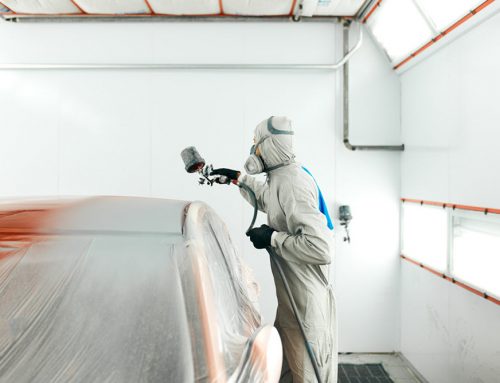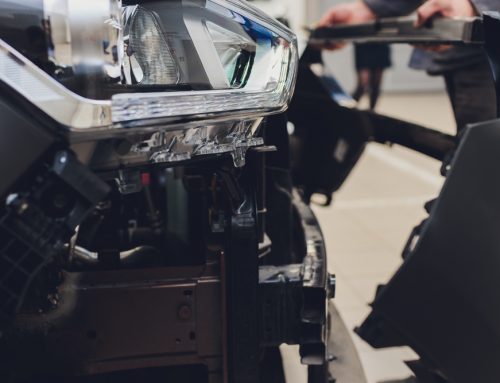In the last few articles, we have learned and unravelled six of our seven performance rules for optimizing capacity at collision shops.
In summary, a good communication with the team, a sound methodology and a strong capacity planning and analysis tool are the three main pillars for capacity planning. With these, you can lay a solid foundation for your planning and achieve new levels of performance.
Once you have acquired all this, you’ll need to learn to push your limits.
We are far from handyman bodybuilders who had many other considerations. We’re talking here about the entrepreneur bodybuilders. Often, they don’t even know how to remove a bumper from a vehicle. It may be practical, but it’s no big deal. Times have changed. We may miss those days but embracing our nature as entrepreneurs whose goal is to grow an organization is the healthy way to look at things.
To do this, we must often question ourselves. Once we meet the performance rules, we need to ask ourselves how we can do better. How can we perform further in our workshop?
Make Sure Find Your Why
The personal reasons that motivate are yours. Making more money, having happier employees, being a reference in your industry, any reason to improve is good. Find yours. Find the reason why you do what you do.
In the communications rule, it is essential to explain the why to your employees or colleagues. It’s a lot easier if you’ve found yours.
Many ideas can stem from this reflection, including your choice of success indicators, how you communicate with your team, how you make your sales, etc.
One thing is certain, finding your why will keep you motivated even in the face of failure.
Doubt is Your Best Friend
Question how you do everything. In fact, never assume that you are perfect in any skill related to your performance. It makes us complacent, we let our guard down and poof, we miss the chance to innovate and become better.
Performance is also an exercise in creativity to find ways to improve things. Sometimes a small reorganization on the production floor, which has not moved for the last twenty years, can bring unexpected benefits.
Comfort Is a Pitfall
A professional athlete who is too comfortable is probably a professional athlete who is not at their best. Great athletes, like Georges St-Pierre of the UFC, never take anything for granted, even against opponents deemed inferior.
So, this comfort feeling is probably a sign that you can improve performance at your workshop.
To progress, Find a Coach
Another parallel with sport. I don’t know if you’ve ever worked with a private coach rather than doing your own little training session but pay attention to your performance if you do. It’s like magic, the simple presence of a coach often makes us better. It’s probably a psychological process driven by pride, but it often works well. This is true for your performance in the workshop too. You will want to impress this person and show them your progress.
Whether it’s with Progi, your paint suppliers, or your banner if you are part of one, there are people ready to help you perform better. Finding a consultant is also a valid option. If the person or people you reach out to help make you better, it is probably a good choice.
It is said that when you ask a good consultant the time, they will ask you for your watch. Why? Because you often have the answers, it’s just that the coach helps you structure them and translate them into tangible actions. If they disturb your habits, it is usually a good sign that you have found someone who will help you think.
Your Team: Your Sinews of War
Your team will bear the victories and failures of all the changes you make. It’s one thing to get external coaches and helpers, but the heart of your workshop is your team. As we saw earlier, team participation is essential to sustain your changes and production. In addition, good communication can be a great driver of innovation and pride for the team. Get their ideas.
Compare Apples with Apples
Comparing ourselves to others to analyze our performance is very healthy. In other words, it allows us to benchmark ourselves and see who we are as performers.
However, it is important to compare yourself with shops that have a similar reality, both in terms of size (such as the number of productive employees) and in terms of markets. Some markets have different regional characteristics than yours or, for example, do more repairs for dealer customers than for insurer customers. So, the work mix is not the same. You must be careful.
We need to find workshops that are experiencing a similar reality. If you want to challenge yourself with bigger machines to stimulate you, that’s up to you, but you shouldn’t be too disappointed if they manage to do better. Again, you must be vigilant and take a large workshop with a similar market reality.
In any case, never be jealous of others’ success, because pushing your limits means being inspired by the success of others.
Author: Alexandre Rocheleau
Collaboration: Charles Aubry
Translation: Sophie Larocque
Editing: Émilie Blanchette
See rule #1: Setting Objectives
See rule #2: Communicating Objectives
See rule #3: Maintain and Analyze
See rule #4: Don’t Overload the Workshop
See rule #5: Choose the Best Time for Repairs
See rule #6: Receive and Deliver Vehicles Every Day





